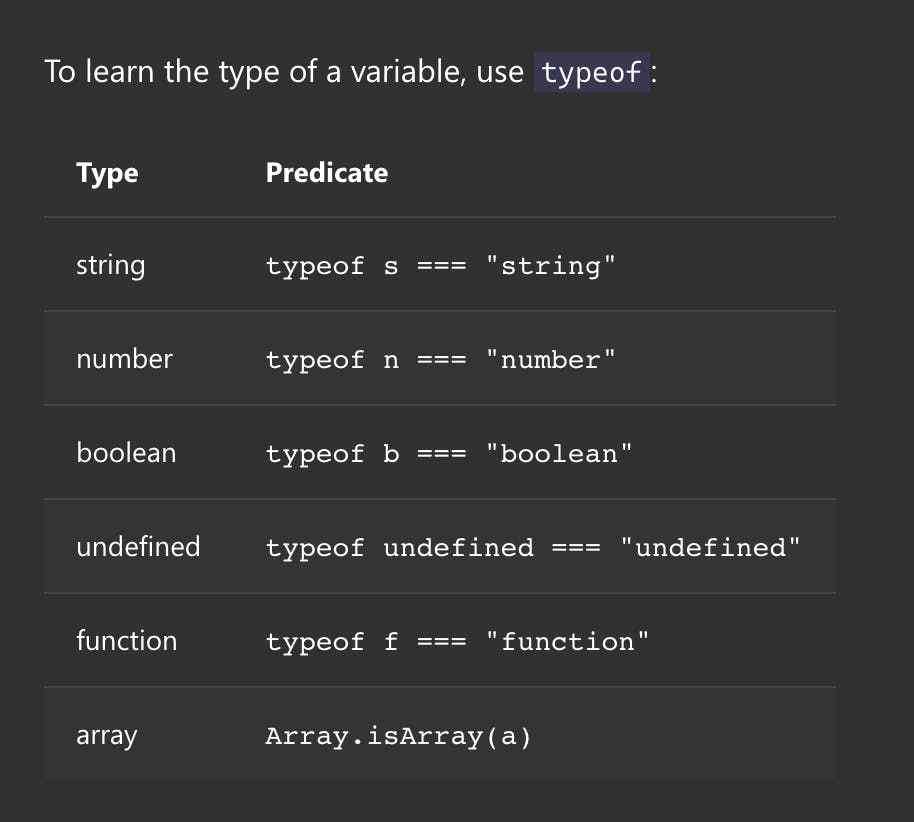Learn about TypeScript
Types by Inference #
let helloWorld = "Hello World";
Defining Types
You can explicitly describe this object’s shape using an interface declaration:
interface User {
name: string;
id: number;
}
const user: User = {
name: "Hayes",
id: 0,
};
Since JavaScript supports classes and object-oriented programming, so does TypeScript. You can use an interface declaration with classes:
interface User {
name: string;
id: number;
}
class UserAccount {
name: string;
id: number;
constructor(name: string, id: number) {
this.name = name;
this.id = id;
}
}
const user: User = new UserAccount("Murphy", 1);
Composing Types
With TypeScript, you can create complex types by combining simple ones. There are two popular ways to do so: with Unions, and with Generics.
Unions
type WindowStates = "open" | "closed" | "minimized";
type LockStates = "locked" | "unlocked";
type OddNumbersUnderTen = 1 | 3 | 5 | 7 | 9;
function getLength(obj: string | string[]) {
return obj.length;
}

Generics
To be continued...

